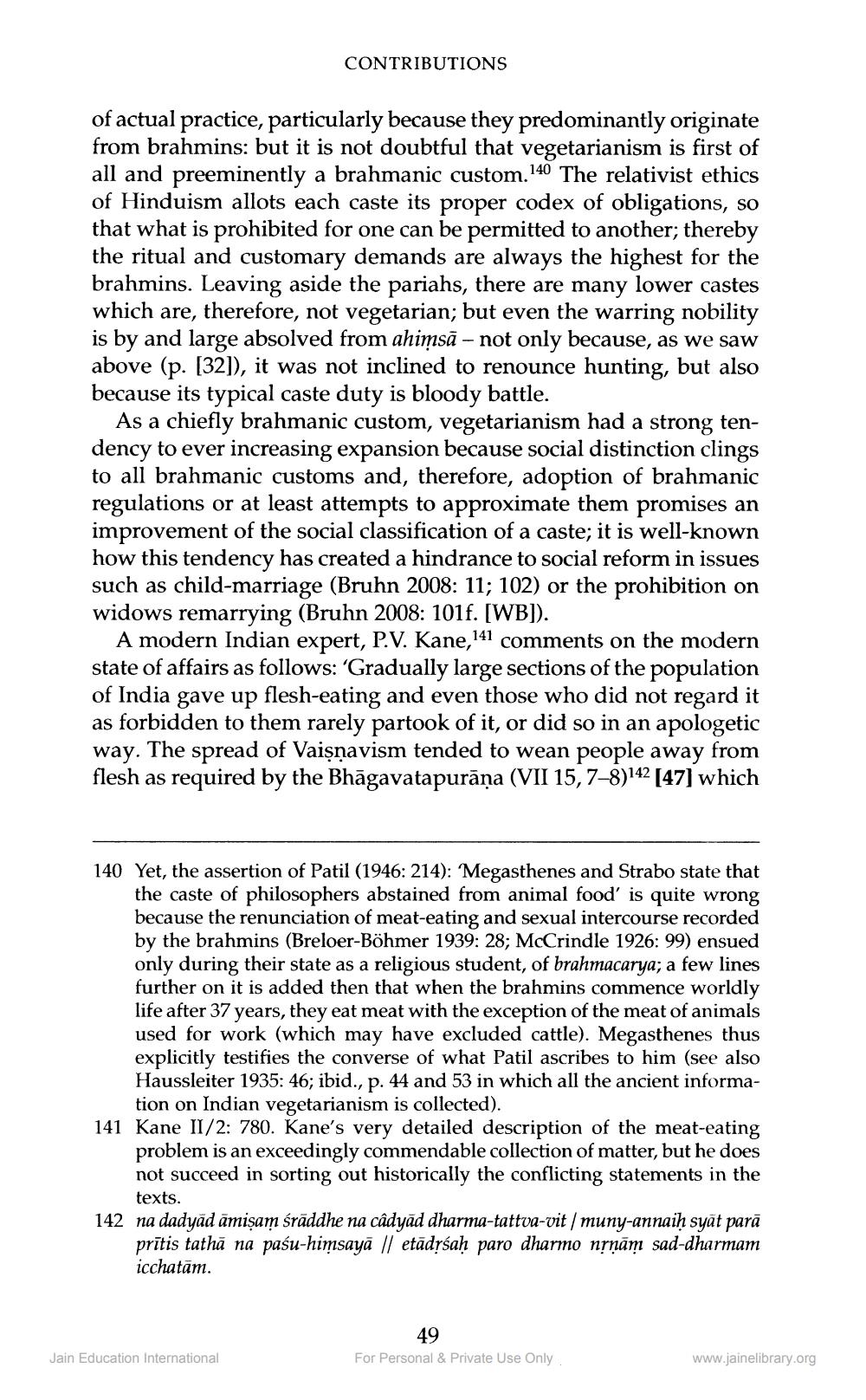________________
CONTRIBUTIONS
of actual practice, particularly because they predominantly originate from brahmins: but it is not doubtful that vegetarianism is first of all and preeminently a brahmanic custom.140 The relativist ethics of Hinduism allots each caste its proper codex of obligations, so that what is prohibited for one can be permitted to another; thereby the ritual and customary demands are always the highest for the brahmins. Leaving aside the pariahs, there are many lower castes which are, therefore, not vegetarian; but even the warring nobility is by and large absolved from ahiņsā - not only because, as we saw above (p. [32]), it was not inclined to renounce hunting, but also because its typical caste duty is bloody battle.
As a chiefly brahmanic custom, vegetarianism had a strong tendency to ever increasing expansion because social distinction clings to all brahmanic customs and, therefore, adoption of brahmanic regulations or at least attempts to approximate them promises an improvement of the social classification of a caste; it is well-known how this tendency has created a hindrance to social reform in issues such as child-marriage (Bruhn 2008: 11; 102) or the prohibition on widows remarrying (Bruhn 2008: 101f. [WB]).
A modern Indian expert, P.V. Kane, 141 comments on the modern state of affairs as follows: 'Gradually large sections of the population of India gave up flesh-eating and even those who did not regard it as forbidden to them rarely partook of it, or did so in an apologetic way. The spread of Vaisnavism tended to wean people away from flesh as required by the Bhāgavatapurāņa (VII 15,7–8)142 [47] which
140 Yet, the assertion of Patil (1946: 214): Megasthenes and Strabo state that
the caste of philosophers abstained from animal food' is quite wrong because the renunciation of meat-eating and sexual intercourse recorded by the brahmins (Breloer-Böhmer 1939: 28; McCrindle 1926: 99) ensued only during their state as a religious student, of brahmacarya; a few lines further on it is added then that when the brahmins commence worldly life after 37 years, they eat meat with the exception of the meat of animals used for work (which may have excluded cattle). Megasthenes thus explicitly testifies the converse of what Patil ascribes to him (see also Haussleiter 1935: 46; ibid., p. 44 and 53 in which all the ancient informa
tion on Indian vegetarianism is collected). 141 Kane II/2: 780. Kane's very detailed description of the meat-eating
problem is an exceedingly commendable collection of matter, but he does not succeed in sorting out historically the conflicting statements in the
texts. 142 na dadyad āmişam śrāddhe na câdyād dharma-tattva-vit / muny-annaiḥ syāt parā
prītis tathā na pasu-himsayā // etādrśaḥ paro dharmo nrņām sad-dharmam icchatām.
49 For Personal & Private Use Only
Jain Education International
www.jainelibrary.org




